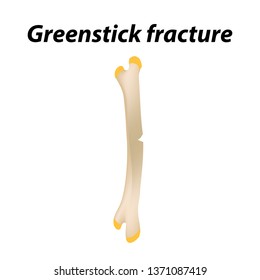The Role Of Nourishment In Back Pain Monitoring: Foods To Consume And Avoid
The Role Of Nourishment In Back Pain Monitoring: Foods To Consume And Avoid
Blog Article
Post Writer-Russo Wheeler
When it comes to handling your neck and back pain, the food options you make can considerably impact exactly how you really feel every day. Imagine having the ability to relieve your discomfort merely by readjusting what you consume. By comprehending the role of nourishment in neck and back pain monitoring and knowing which foods to incorporate or avoid, you can take aggressive actions in the direction of a much healthier and extra comfortable lifestyle. The link in between nourishment and back wellness is a lot more profound than you might recognize-- let's check out how particular foods can either relieve or exacerbate your back pain.
Value of Nourishment in Pain In The Back
Nutrition plays a vital function in managing neck and back pain. click for more info can considerably affect inflammation degrees and general discomfort levels in your back. Consuming a well balanced diet regimen rich in nutrients like vitamins D and K, calcium, magnesium, and omega-3 fatty acids can help reduce swelling and strengthen bones, which are crucial for back wellness.
In addition, maintaining a healthy and balanced weight via appropriate nutrition can reduce stress on your back, lowering the risk of back pain.
Additionally, specific nutrients like anti-oxidants discovered in vegetables and fruits can aid battle oxidative tension and promote healing in the body, consisting of the back muscle mass and spinal column.
On the other hand, eating extreme amounts of refined foods, sugary beverages, and harmful fats can add to inflammation and weight gain, exacerbating back pain.
Foods to Consume for Back Wellness
To support a healthy and balanced back, incorporating nutrient-rich foods into your daily meals is key. Including integrative medical austin in anti-oxidants like berries, spinach, and kale can help reduce swelling in your back, easing pain and discomfort. Omega-3 fatty acids discovered in fatty fish such as salmon and mackerel have anti-inflammatory homes that can benefit your back wellness.
Furthermore, consuming nuts and seeds like almonds, walnuts, and chia seeds gives important nutrients like magnesium and vitamin E, which sustain muscular tissue function and minimize oxidative tension. Incorporating lean healthy proteins such as hen, turkey, and tofu can assist in muscular tissue fixing and upkeep, advertising a solid back.
Don't neglect to include dairy products or strengthened plant-based options for calcium to support bone wellness. Last but not least, moisturize with lots of water to maintain your spinal discs hydrated and working optimally. By including these nutrient-dense foods in your diet, you can nurture your back and support general spine health and wellness.
Foods to Stay Clear Of for Back Pain
Choose staying clear of refined foods high in added sugars and trans fats when looking for remedy for back pain. These kinds of foods can contribute to inflammation in the body, which may worsen neck and back pain. Say no to sugary snacks like candy, breads, and sugary beverages, as well as convenience food items like hamburgers, french fries, and fried hen that are commonly packed with trans fats.
Additionally, stay away from foods including high degrees of refined carbohydrates, such as white bread, pasta, and breads, as they can spike blood glucose degrees and potentially intensify inflammation in the body.
It's also wise to limit your intake of foods high in saturated fats, like red meat and full-fat milk items, as they can add to swelling. Processed foods like delicatessens meats, chips, and packaged snacks are often high in saturated fats and must be consumed in moderation.
Conclusion
In conclusion, paying attention to your diet regimen and making smart food selections can have a significant influence on managing pain in the back. By including nutrient-rich foods like berries, fatty fish, nuts, and lean proteins, and staying clear of refined and sweet things, you can help reduce inflammation and support in general back wellness. Remember, what you consume plays an essential role in exactly how you feel, so see to it to prioritize your nutrition for a healthier back.
